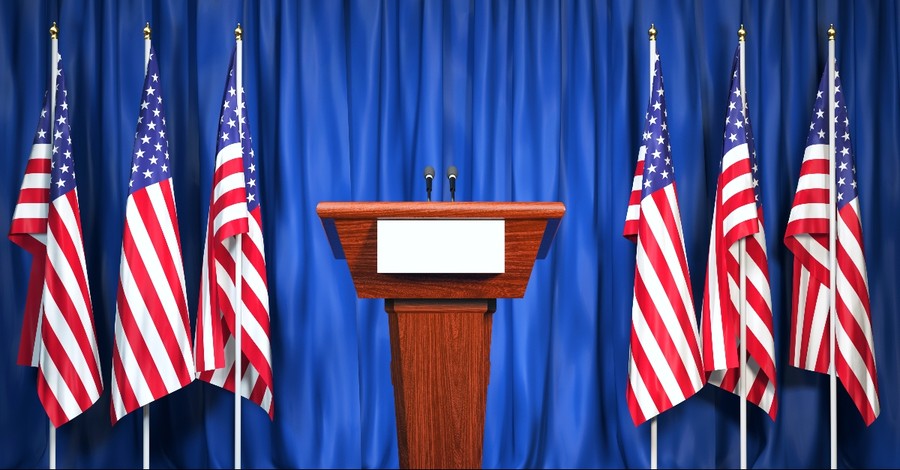
While I am a pastor and a writer, my full-time work involves teaching American History to high school students at my Alma Mater in south Alabama. This semester I am teaching a Current Events elective. We spend most of our time in this class helping students understand the issues facing the world today from a variety of perspectives and keeping up with the daily news.
With the midterm elections approaching, I thought it would be helpful for my students to watch some political debates. Instead of just turning them on and watching them from beginning to end, we would pause after each segment and talk about what we had just heard. Sometimes this meant I would need to explain the reasoning behind the question or explain the issue the moderator was asking about. However, most of the time, we discussed the candidates' answers or lack thereof, their attacks on their opponents, and their attempts to answer questions without giving specifics.
After watching the Georgia Senate debate, Florida Gubernatorial debate, and Pennsylvania Senate debate with future voters, I have some advice to offer candidates for their future debates.
Answer the Question
It is shocking how often candidates do not answer the question they are asked by the moderator. Sometimes they go on unrelated tangents, and other times they distract from the question by going after their opponent but rarely do candidates give thoughtful answers to legitimate questions.
Another avoidance tactic we heard candidates use was affirming the premise of the question without answering the question itself. For example, let's pretend the question is, "What would you do to improve reading scores in our states' schools?" Instead of answering the question about what concrete steps they would take, the candidates would spend their time talking about how important reading scores are and how we need to work hard to improve them. They affirmed the question but did nothing to answer it.
If you want to get the attention of younger voters, answer the question you were asked. Don't divert, don't attack, and don't equivocate. Give a clear and specific answer that shows voters what you actually believe and what actions you would take if you were in office.
Leave Your Rehearsed Lines at Home
Several of my students were flabbergasted at the Florida Gubernatorial Debate. During the debate, Charlie Crist went after Governor Ron Desantis for "Taking away a woman's right to choose" every chance he got. Crist often repeated this line during questions that had nothing to do with abortion. One student even asked me about halfway through the debate, "Why does he keep doing that?" The only answer I could give was that he must have a poll that showed this issue was important to voters.
Whatever Crist's internal polling may have told him, his insistence on repeating this line ad nauseum at random points in the debate minimized its effectiveness. It came across as if he wanted to divert attention from the question at hand to what he really thought was important. He ignored questions on the economy and hurricane relief to talk about abortion. The young people I watched the debate with, even those who might have agreed with his stance on abortion, found it distracting, annoying, and off-putting
Attack Lines Only Work Once
Closely related to the previous point, rehearsed attack lines may work once or twice, but when they are repeated throughout the debate, they lose their effectiveness. In his debate with Senator Raphael Warnock, Herschel Walker labored to connect Warnock to President Joe Biden and the struggling economy. At one point in the debate, we were trying to keep count of Walker's Biden mentions, but we abandoned the enterprise.
Our economic situation is bleak, Joe Biden is President, and Raphael Warnock has continually voted to support Biden's policies. These things are all true and germane to the debate, but the repetition grew distracting and appeared petty as the debate wore on. Even when he had the opportunity to affirm his own qualifications for the post and vision for the future, Walker went after Biden and Warnock instead. My students saw that as a missed opportunity.
If I could summarize our discussions for candidates, this would be my advice – criticize your opponent's position where it is necessary but spend more time articulating what you would do to move our country forward. Convince voters based on your qualifications and policies rather than hammering on the one or two perceived weaknesses of your opponent. And when you attack, pick your spot, make it count, and move on. It would be much more effective.
The views expressed in this commentary do not necessarily reflect those of Christian Headlines.
Photo courtesy: ©iStock/Getty Images Plus/Bet_Noire
Scott Slayton writes at “One Degree to Another.”










